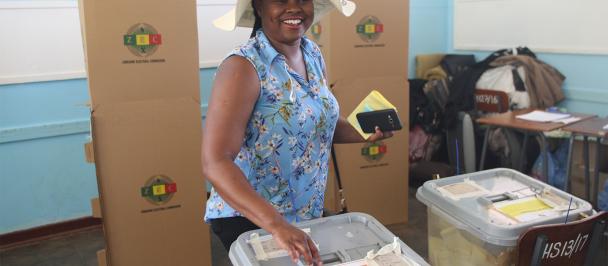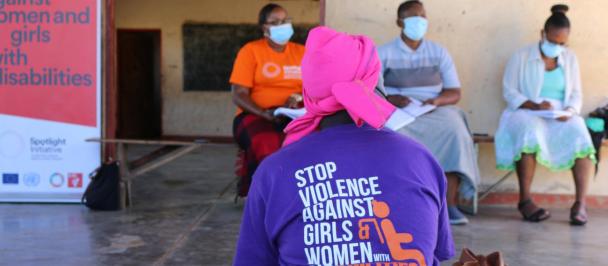UNDP and ZRP Partner on Improving Policing for Gender Equality
December 18, 2023
Globally, 1 in 3 women has experienced violence. With sexual and gender-based violence occurring every day, it was expedient for the Zimbabwe Republic Police to partner with the United Nations Development Programme (UNDP) and provide induction training for its eighty victim-friendly unit officers in the Northern and Southern regions of the country. The training augmented their skills to effectively handle Sexual and Gender-Based Violence (SGBV) cases, support survivors and improve service delivery.
Gender-based violence is a harmful phenomenon that must be effectively tackled to ensure survivors receive the help they need and access justice. In the face of gender-based violence, the police, particularly the victim-friendly unit, is usually the first point of contact for survivors. How cases are handled and survivors are interacted with has a crucial impact on their safety, well-being, empowerment, and perception of the justice system.
During the training, the Chief Staff Officer- Crime Deputy Commissioner General Abigail Moyo emphasized that the workshop gave VFU officers the skills to provide survivors with sensitive, coordinated, effective, and comprehensive services.
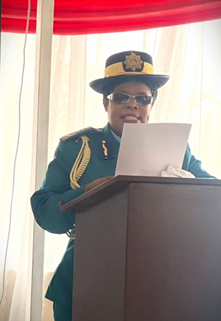
Deputy Commissioner General - Abigail Moyo
“The training program is specifically designed to equip investigators in the Victim Friendly Unit with the necessary skills, knowledge, and attitude to effectively respond to Sexual and Gender-Based Violence (SGBV) cases following international best practices. The training covers critical topics such as scene attendance, chain of custody, preservation of forensic and digital evidence, criminal profiling, and violence against children.”
Police capacity to address GBV must be strengthened to build trust and encourage survivors to seek justice. This will enable VFU personnel to meet the needs of survivors without causing them further harm. During his solidarity remarks, Gift Govere, UNDP Programme Analyst on Disability and Inclusion, emphasized that achieving gender equality and empowering women requires a comprehensive approach. This approach should address their day-to-day experiences with sexual and gender-based violence.
“The UNDP has played a crucial role in raising awareness of sexual and gender-based violence (SGBV) as a national concern. Through its collaboration with all branches of government, the UNDP has helped to create and enforce necessary legal and policy frameworks to combat SGBV.”
The Police collaborate closely with the National Prosecuting Authority (NPA) and provide technical assistance throughout the investigation process, especially regarding sexual and gender-based violence (SGBV) cases. By working together, both institutions can improve the likelihood of survivors receiving the justice they deserve. In his presentation on the NPA's role in investigating and prosecuting SGBV cases, Mr Acumen Khupe emphasized that as legal advisors to the police, they are committed to ensuring the quality and success of prosecutions, which is essential for maintaining public confidence in the justice system.
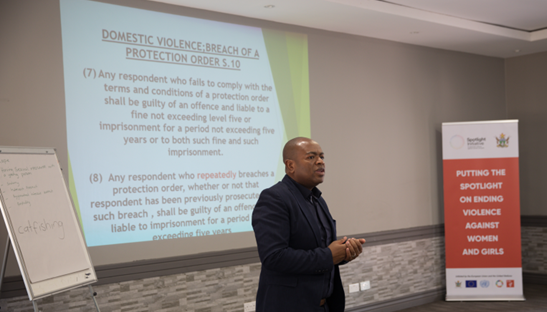
Mr Acumen Khupe
“NPA plays a crucial role in promoting a fair and equitable justice system for all individuals involved in legal proceedings. It facilitates access to justice for survivors and ensures due process for individuals accused of criminal offenses.”
Detective Sergeant Douglas Livanga from the Forensic Science Laboratory highlighted a pertinent issue about successfully prosecuting cases with evidence. In a presentation on crime scene management and forensic evidence, he emphasized the crucial role of forensics in dealing with cases of sexual and gender-based violence. VFU officers were urged to consolidate evidence to help survivors establish crucial facts for cases.
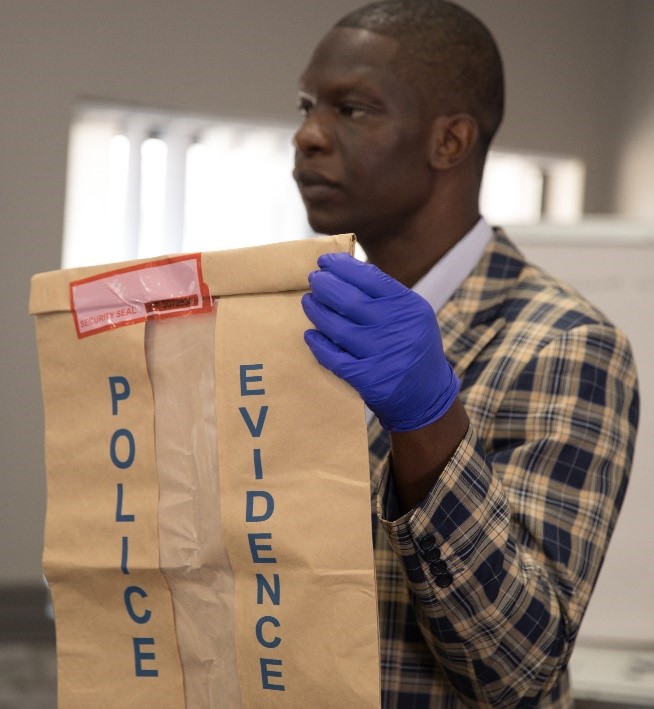
Mr Douglas Livanga
“Forensic evidence plays a crucial role in confirming evidence and establishing a connection between the accused, survivors, and the scene. Proper handling of forensic evidence is essential in reconstructing events and tracking evidence. The reliability of forensic evidence depends on how it is handled, and its value lies in ensuring that it conforms to the set standards for proper handling. This guarantees the credibility and assurance of the results obtained from forensic analysis.”
UNDP’s efforts to address sexual and gender-based violence (SGBV) are crucial to achieving Sustainable Development Goals 5 and 16. These goals are aimed at promoting gender equality, providing access to justice for all, and building inclusive institutions. The UNDP will continue to work together with government institutions towards creating safer and more secure communities.

 Locations
Locations